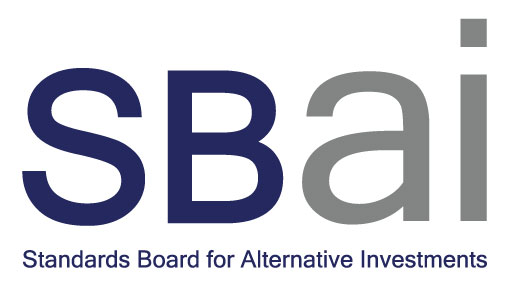The SBAI's Principles for Carbon Footprinting: New Guidance for Alternative Managers and Investors
The Standards Board for Alternative Investments (SBAI) has published new Principles for GHG-Emission Accounting in Alternative Strategies. The guidance expands on existing frameworks developed by the Task Force on Climate-Related Financial Disclosures (TCFD) and the Partnership for Carbon Accounting Financials (PCAF) to provide guidance for managers and investors looking to measure risk and impact associated with their hedge fund portfolios.
In this first iteration of guidance, the SBAI develops a methodology that allows for the incorporation of derivatives and short positions in GHG-emission calculations and reporting in relation to listed and unlisted equity, corporate bonds and business loans, project finance, commercial real estate, mortgages, motor vehicle loans, and sovereign debt. The framework outlines the case for inclusion of derivatives and short positions from both the perspective of sustainability outcomes through impacts on market price formation, as well as measuring and assessing total GHG-emission risk exposure.
The SBAI report also provides additional metrics investors may use to assess their (potential for) impact on sustainability outcomes, including through their ability to vote, or to provide new cash funding in primary markets.
The framework has been developed by the SBAI’s Responsible Investment Working Group, comprising of leading alternative investment managers and institutional investors from the SBAI’s global network of Signatories and Investor Chapter members with more than USD8tn in assets under management.
Mario Therrien, SBAI Chair and Head of Investment Funds and External Management, CDPQ: “Responsible Investment has been an area of focus at the SBAI for several years now, and we are delighted to continue to bring the debate forward with our community of alternative investment managers and investors on how to best expand GHG-emission reporting beyond the long-only world of traditional investments.”
Toby Belsom, Director of Guidance at Principles for Responsible Investment: “The PRI welcomes the SBAI’s efforts to provide guidance on GHG-emissions accounting when employing strategies other than investing in long-only cash equities. When investors deploy these strategies and invest in alternative vehicles, they should do so whilst being fully transparent when disclosing GHG-emissions related to portfolios and investees. This includes being clear about which metrics and measures they use to record progress on reducing GHG-emissions, how they engage, and how they work towards sustainability outcomes.”
Pierre Lenders, Head of Sustainability at Capital Fund Management: “The role of derivatives in GHG-Emission Accounting has been highly debated. Incorporating these instruments into reporting is an important step in not only preventing greenwashing, but also providing more accurate assessment of emission-related risk.”
Priti Singh, SBAI Trustee, Senior Managing Director & Global Head of Capital Markets and Factor Investing at CPP Investments: “We believe that more comprehensive disclosure of climate-related metrics by managers is critical in helping investors make better informed decisions, and we are supportive of initiatives like this to standardise reporting.”
Jean Rogers, Sr MD and ESG Chairperson, Blackstone: “The SBAI’s Principles for GHG-Emission Accounting provide a consistent approach to measuring and reporting GHG-emission risk and impact.”
Mark Carhart, CIO, Kepos Capital: “The SBAI's Principles for GHG-Emission Accounting provide clear and intuitive rationale for measuring financed emissions – better termed as endorsed emissions. In keeping with the mission of the SBAI, the proposed methodology provides a transparent and meaningful approach for our investors in not only describing their responsible investing goals, but also meeting their reporting objectives.”
Paula Volent, SBAI Trustee, VP & CIO, Rockefeller University: “The SBAI's Principles allow for more transparent GHG-emission risk accounting at portfolio level. This is a very important step in moving the debate forward on responsible investment.”
The SBAI’s Responsible Investment Working Group will continue to explore methodologies for carbon accounting and potential cases for inclusion in other asset classes, including commodities and insurance-linked funds, and will publish further modules to this guidance in due course.
The SBAI is an active alliance of over 150 alternative asset managers and over 100 institutional investors dedicated to advancing responsible practice, partnership, and knowledge. It advocates for an effective alternative investment ecosystem through robust standards and the exchange of ideas. For more information on the SBAI or to join the SBAI community, please contact [email protected] or visit www.sbai.org.






